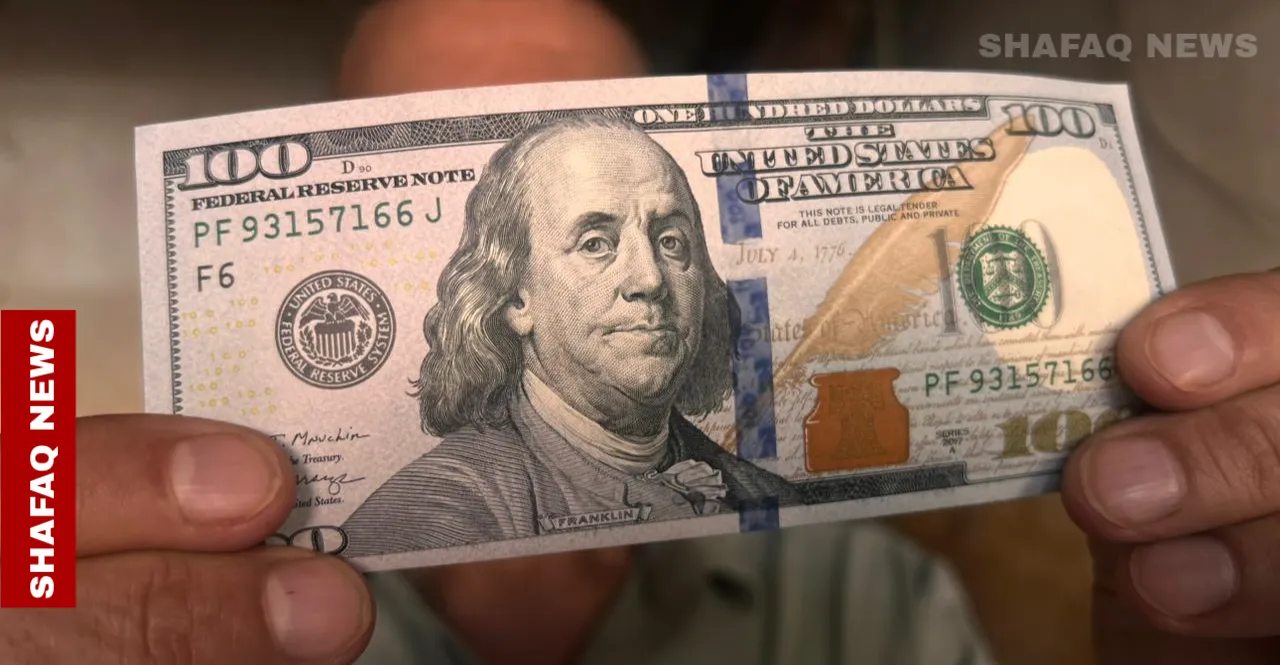The “sudden” rise of the dollar in Iraq: challenges and concerns
 The exchange rate of the US dollar in Iraq has been under renewed pressure recently, amid widespread economic debate about the reasons for the rise and its impact on the general budget and the local economy. Experts have differing views on the nature of government measures and their results, with a general agreement on the need for a comprehensive package of reforms instead of relying on a single tool.
The exchange rate of the US dollar in Iraq has been under renewed pressure recently, amid widespread economic debate about the reasons for the rise and its impact on the general budget and the local economy. Experts have differing views on the nature of government measures and their results, with a general agreement on the need for a comprehensive package of reforms instead of relying on a single tool.
On Monday, Iraqi markets recorded a sudden rise in the exchange rate of the dollar against the Iraqi dinar. The Al-Kifah and Al-Harithiya exchanges in Baghdad recorded 144,000 dinars for 100 dollars at midday, compared to 142,250 dinars in the morning. Meanwhile, the selling price in Erbil reached 143,050 dinars and the buying price reached 142,900 dinars for every 100 dollars.
Changing the exchange rate is not a solution
Economic expert Mahmoud Dagher told Shafaq News Agency that the worsening budget deficit prompted the Iraqi government since the end of 2020 to take rapid measures such as reducing the value of the dinar, and then raising the value of the dollar in 2023, but he pointed out that these decisions, despite their importance, are not radical solutions.
Dagher, a former director at the central bank, explained that “reducing or changing the exchange rate cannot be the sole cure for the crisis, as long as it is not accompanied by a set of complementary measures.”
He added that the continuation of the crises is linked to the absence of real reforms in key areas such as combating corruption, improving tax collection, developing the electricity and water sectors, and regulating the work of ports and customs.
Dagher also said: “Changing the exchange rate is worthless if it is a one-off measure. Everyone is treating it as a tool to get out of the crisis, while the truth is that the problem is bigger, and the budget gap can only be overcome through an integrated package of tools, foremost among which is linking spending to revenue.”
Monetary cooperation ensures stability
For his part, the Prime Minister’s financial advisor, Mazhar Muhammad Saleh, confirmed to Shafaq News Agency that there is a high level of constructive cooperation between monetary and fiscal policies based on the principle of indirect monetary adjustment.
He explained that this principle provides initial financial leverage to the banking system by enabling it to purchase government bonds from all local banks, through discounting operations which in turn lead to the stability of the banking system’s liquidity.
Saleh explained that this cooperation is not limited to that, but rather constitutes a fundamental pillar for securing the short-term financing requirements of public finances, which ensures maintaining comfortable levels of liquidity for banks on the one hand, and for public finances when needed on the other hand.
He stressed that the cash liquidity needs and the provision of its requirements are proceeding normally and regularly, and that salaries, wages, pensions and all other financial obligations are in a very safe position and do not face any risks in the short and medium term.
Corruption is putting pressure on the dinar.
Economic expert Hilal Al-Taan believes that the decline in crude oil prices, the main source of the general budget, in addition to the decline in non-oil revenues represented by taxes, customs and state property revenues, along with the presence of administrative and financial corruption in most parts of the state, and the lack of deterrent measures for the corrupt, may lead to a decrease in the exchange rate of the dinar against the dollar.
Al-Taan added to Shafaq News Agency: “This is what happened in the 2021 budget when the price of the dollar was raised from 120,000 to 145,000 dinars, which led to a significant increase in the prices of all food and consumer goods, and put pressure on the livelihood of the poor and middle classes with limited income.”
He continued: “Therefore, all expectations are possible in the absence of a sound and realistic economic policy for the Iraqi economy.”
It appears that the rise in the price of the dollar in Iraq is not related to a single factor, but rather intersects with financial, administrative and structural challenges that require comprehensive solutions, at a time when the government affirms the continuation of financial stability and its ability to meet basic obligations.
Between experts’ warnings and calls for a broad reform package, and the fiscal and monetary policy’s adherence to its current plans, the market remains on the lookout for any practical steps that may determine the course of the next phase.
Shafaq.com
